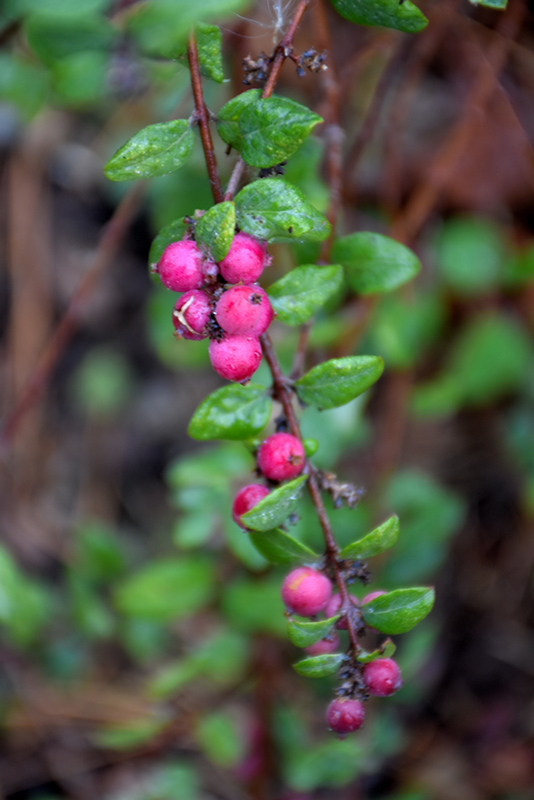Hancock Coralberry
Symphoricarpos x chenaultii 'Hancock'
Height: 24 inches
Spread: 8 feet
Sunlight:
![]()
![]()
![]()
Hardiness Zone: 4b
Other Names: Hybrid Snowberry
Description:
A beautiful wide-spreading shrub with a thoroughly unique habit, arching stems and striking two-tone berries in white and rose-pink in fall; a first rate groundcover for texture and color, also good for controlling erosion on banks
Ornamental Features
Hancock Coralberry is primarily grown for its highly ornamental fruit. It features an abundance of magnificent rose berries from early fall to late winter. It features subtle pink bell-shaped flowers along the branches in early summer. It has bluish-green deciduous foliage. The small oval leaves do not develop any appreciable fall color.
Landscape Attributes
Hancock Coralberry is a dense multi-stemmed deciduous shrub with a ground-hugging habit of growth. Its relatively fine texture sets it apart from other landscape plants with less refined foliage.
This shrub will require occasional maintenance and upkeep, and can be pruned at anytime. It is a good choice for attracting birds to your yard, but is not particularly attractive to deer who tend to leave it alone in favor of tastier treats. Gardeners should be aware of the following characteristic(s) that may warrant special consideration;
- Suckering
Hancock Coralberry is recommended for the following landscape applications;
- Mass Planting
- General Garden Use
- Groundcover
- Naturalizing And Woodland Gardens
Planting & Growing
Hancock Coralberry will grow to be about 24 inches tall at maturity, with a spread of 8 feet. It tends to fill out right to the ground and therefore doesn't necessarily require facer plants in front. It grows at a medium rate, and under ideal conditions can be expected to live for approximately 20 years.
This shrub performs well in both full sun and full shade. It is very adaptable to both dry and moist locations, and should do just fine under typical garden conditions. It is not particular as to soil type or pH. It is somewhat tolerant of urban pollution. This particular variety is an interspecific hybrid.



